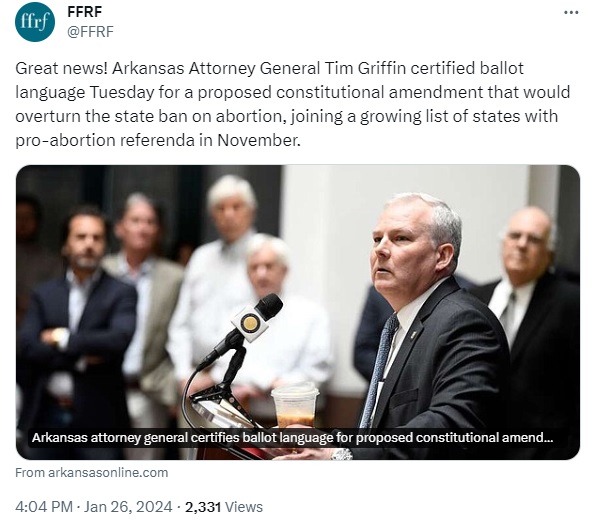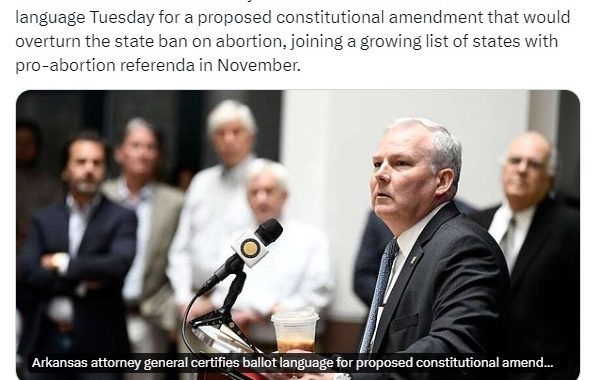Atheist Organization Celebrates Amendment That Would Write Abortion Into Arkansas’ Constitution

On Friday the nation’s most prominent atheist organization issued a statement celebrating the proposed Arkansas Abortion Amendment of 2024.
The group Arkansans for Limited Government is backing the amendment. If passed, the measure would write abortion into the Arkansas Constitution and legalize as many as 3,000 or more elective abortions every year in the state.
Arkansans for Limited Government must collect more than 90,000 petition signatures from registered voters before the amendment can officially appear on the November ballot.
In a post on X (formerly Twitter), the Freedom From Religion Foundation — an atheist group headquartered in Wisconsin — celebrated the abortion amendment, writing,
Great news! Arkansas Attorney General Tim Griffin certified ballot language Tuesday for a proposed constitutional amendment that would overturn the state ban on abortion, joining a growing list of states with pro-abortion referenda in November.
This is not the first time the Freedom From Religion Foundation has weighed in on ballot measures in Arkansas.
In 2022 the group celebrated the defeat of Arkansas’ religious freedom amendment at the ballot box.
More recently, the Freedom From Religion Foundation sent a complaint to the Crawford County Sheriff’s Office over inmate baptisms at the county’s correctional facility and provided an atheist display on the Arkansas Capitol Grounds last Christmas.



